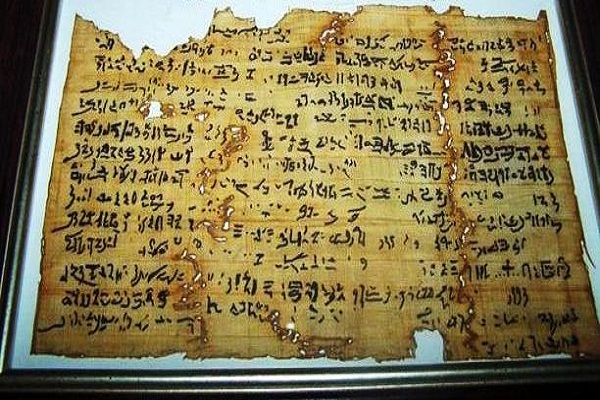(AhlulBayt News Agency) - The story of Prophet Moses (AS) and the Pharaoh is among the historical accounts in the Quran.
The Holy Book says in verses 132 and 133 of Surah al-A’araf: And they said: "They said (to Moses): "Whatever be the Signs thou bringest, to work therewith thy sorcery on us, we shall never believe in thee. So We sent (plagues) on them: Wholesale death, Locusts, Lice, Frogs, And Blood: Signs openly self-explained: but they were steeped in arrogance,- a people given to sin.”
And an ancient Egyptian papyrus testifies to the truth of the Quranic account of the historical event.
The Ipuwer Papyrus was made during the Nineteenth Dynasty of Egypt, and now held in the Dutch National Museum of Antiquities in Leiden, Netherlands.
In the early 19th century the papyrus was discovered in Egypt. It was taken to the Leiden Museum and translated by AH Gardiner in 1909.
The entire text appears in the book Admonitions of an Egyptian from a Hieratic Papyrus in Leiden, and describes major changes in Egypt; famine, drought, the slaves’ flight from Egypt with their assets, and death all over the nation.
The papyrus was written by an Egyptian called Ipuwer and it appears from its contents that this individual personally witnessed the disasters that struck Egypt.
It is a most significant hand-written description of the catastrophes, the death of Egyptian society and the destruction of Pharaoh.
The chain of disasters which struck the people of Egypt, according to this document, conforms perfectly with the Quranic account of these matters.
This papyrus, which closely parallels the catastrophes which struck Egypt in the time of Pharaoh, once again demonstrates the Quran to be divine in origin.
/106

